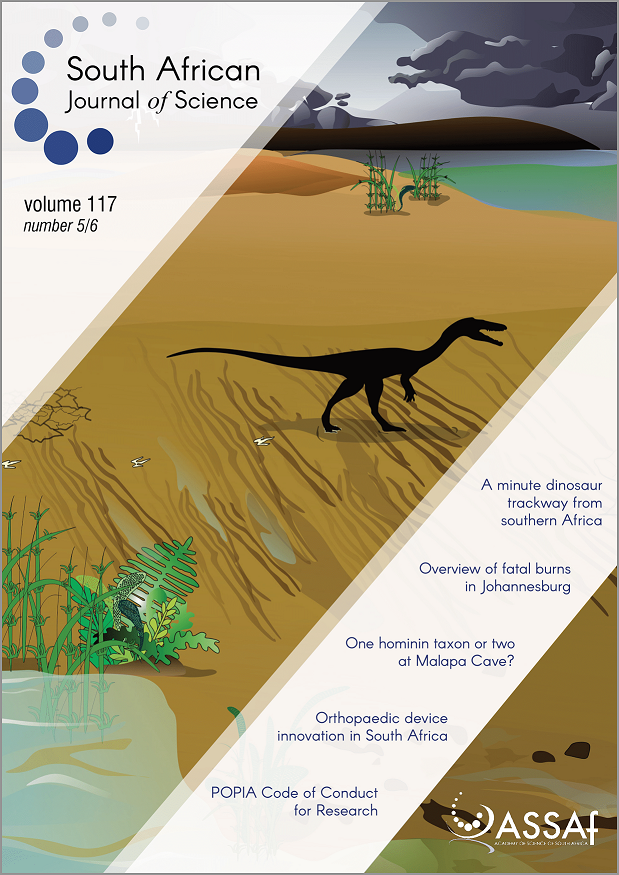The urban water metabolism of Cape Town: Towards becoming a water sensitive city
DOI:
https://doi.org/10.17159/sajs.2021/8630Keywords:
water sensitive cities, performance indicators, urban water management, managed aquifer recharge, water equityAbstract
To improve its resilience to increasing climatic uncertainty, the City of Cape Town (the City) aims to become a water sensitive city by 2040. To undertake this challenge, a means to measure progress is needed that quantifies the urban water systems at a scale that enables a whole-of-system approach to water management. Using an urban water metabolism framework, we (1) provide a first city-scale quantification of the urban water cycle integrating its natural and anthropogenic flows, and (2) assess alternative water sources (indicated in the New Water Programme) and whether they support the City towards becoming water sensitive. We employ a spatially explicit method with particular consideration to apply this analysis to other African or Global South cities. At the time of study, centralised potable water demand by the City amounted to 325 gigalitres per annum, 99% of which was supplied externally from surface storage, and the remaining ~1% internally from groundwater storage (Atlantis aquifer). Within the City’s boundary, runoff, wastewater effluent and groundwater represent significant internal resources which could, in theory, improve supply efficiency and internalisation as well as hydrological performance. For the practical use of alternative resources throughout the urban landscape, spatially explicit insight is required regarding the seasonality of runoff, local groundwater storage capacity and the quality of water as it is conveyed through the complex urban landscape. We suggest further research to develop metrics of urban water resilience and equity, both of which are important in a Global South context.
Significance:
- This research provides the initial groundwork of quantifying the magnitude of the urban water cycle of the City of Cape Town at an annual timescale, in relation to becoming a water sensitive city. The urban water metabolism framework used in this study provides important insight to assess whole-of-system urban water dynamics and to benchmark progress towards becoming water sensitive. By quantifying the magnitude of flows into and out of the urban system, this research sheds light on the opportunities to improve circularity in the urban water cycle. The spatial approach adopted here provides a platform to interrogate the urban landscape and its role in the urban water cycle. By using data products that are available via national data sets or remote sensing, this approach can be applied to other African or Global South where data is characteristically scarce. Further work is required to establish metrics that can adequately describe urban water resilience and equity.
Downloads
Published
Issue
Section
License

All articles are published under a Creative Commons Attribution 4.0 International Licence
Copyright is retained by the authors. Readers are welcome to reproduce, share and adapt the content without permission provided the source is attributed.
Disclaimer: The publisher and editors accept no responsibility for statements made by the authors
How to Cite
- Abstract 1204
- PDF 1086
- EPUB 146
- XML 189
- Supplementary Material 100
Metrics
Funding data
-
National Research Foundation
Grant numbers 114696












.png)